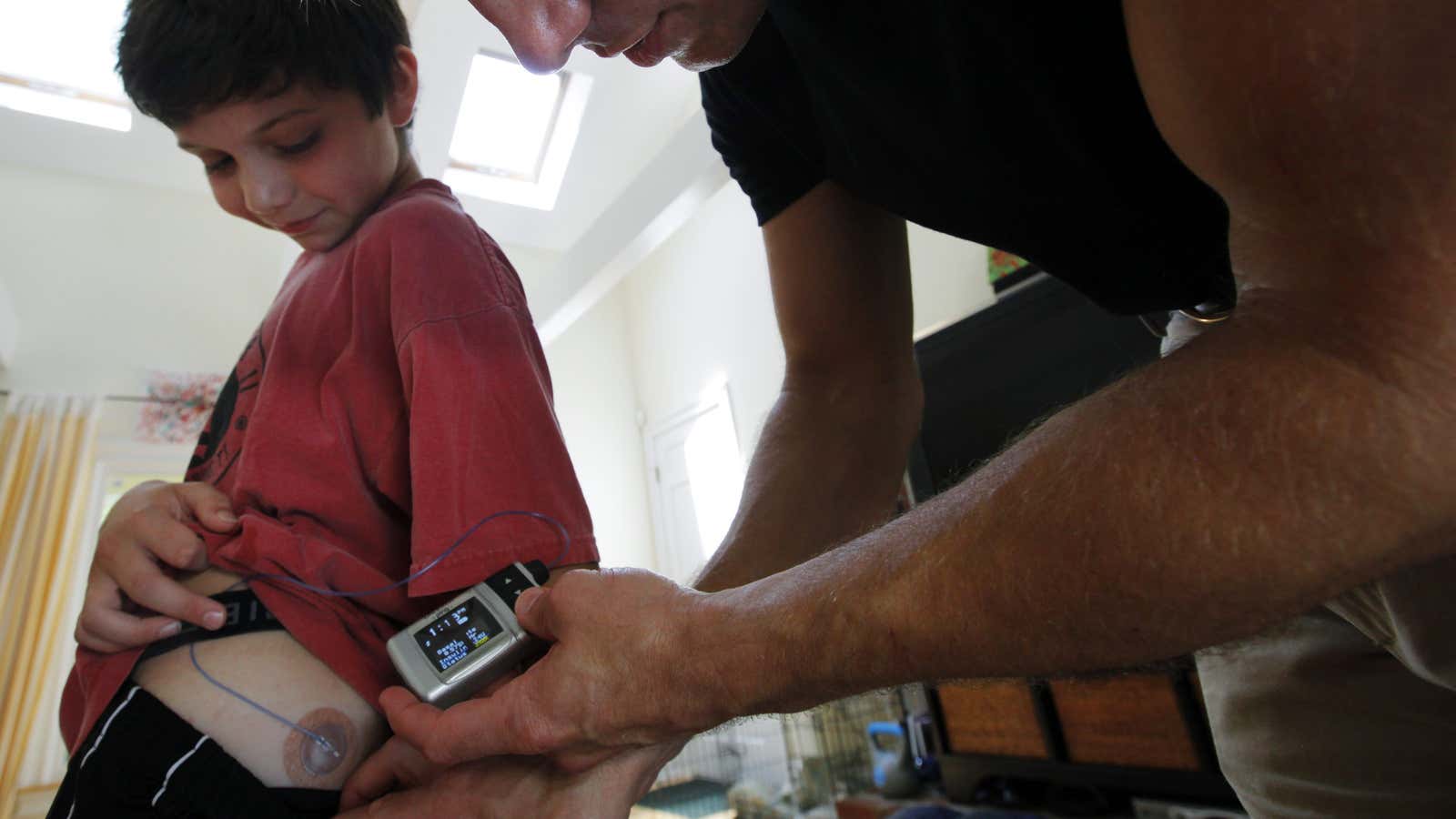Following up on the promise to contain the sky-rocketing cost of insulin, the US House of Representatives passed a law that should make the lifesaving drug accessible for more Americans.
Currently, the price of a standard vial of insulin in the US ranges between $175 and $300, and the average patient needs about two a month. On average, the 30 million Americans being treated for diabetes (an additional 7 million Americans don’t know they have diabetes) spend twice as much as the rest of the population on healthcare costs, and more than $9,500 a year in expenses related to the condition.
It’s a price that is completely out of line with the rest of the world. A 2020 study found that the reported average price for rapid-acting insulin in the US was $113.39 per vial, or 13 times the average in comparable countries ($8.19). Intermediate-acting insulin was $73.56 per vial, or 12 times higher than the non-US average of $5.95. Prices have only risen since then.
The new bill, which needs 10 Republican votes on top of the Democratic majority in the Senate to pass, would cap the monthly expense in insulin to $35—for insured patients, that is.
A lower copay (if you can get it)
The Affordable Insulin Now act, if approved by the Senate, could make a difference for about 20% of the privately insured Americans who currently spend more than $35 a month on their copay for the medication.
The bill would limit the out-of-pocket payment for insulin to a maximum of $35 per 30 days of treatment, or 25% of the price negotiated by the drug company with the insurance, whichever is lowest. No deductible could be applied for insulin.
The bill does nothing to actually stop price gauging and bring the price of insulin under control. It simply limits the monthly copay insurance companies can ask for. This means that the act has virtually no impact on the price of the drug for uninsured or underinsured patients (who, for instance, have insurance only for medical emergencies). Further, by forcing insurance companies to potentially pay a higher share of the drug, it could lead to higher premiums.
More comprehensive prescription drug legislation that would extend insulin coverage to uninsured patients, as well as allow Medicare to directly negotiate with pharmaceutical companies, lowering drug costs, and introduce other cost-cutting measures has been stalled in the Senate. The fate of it depends on the rest of the $2.2 trillion safety net package which has been stuck in the Senate for several months.
